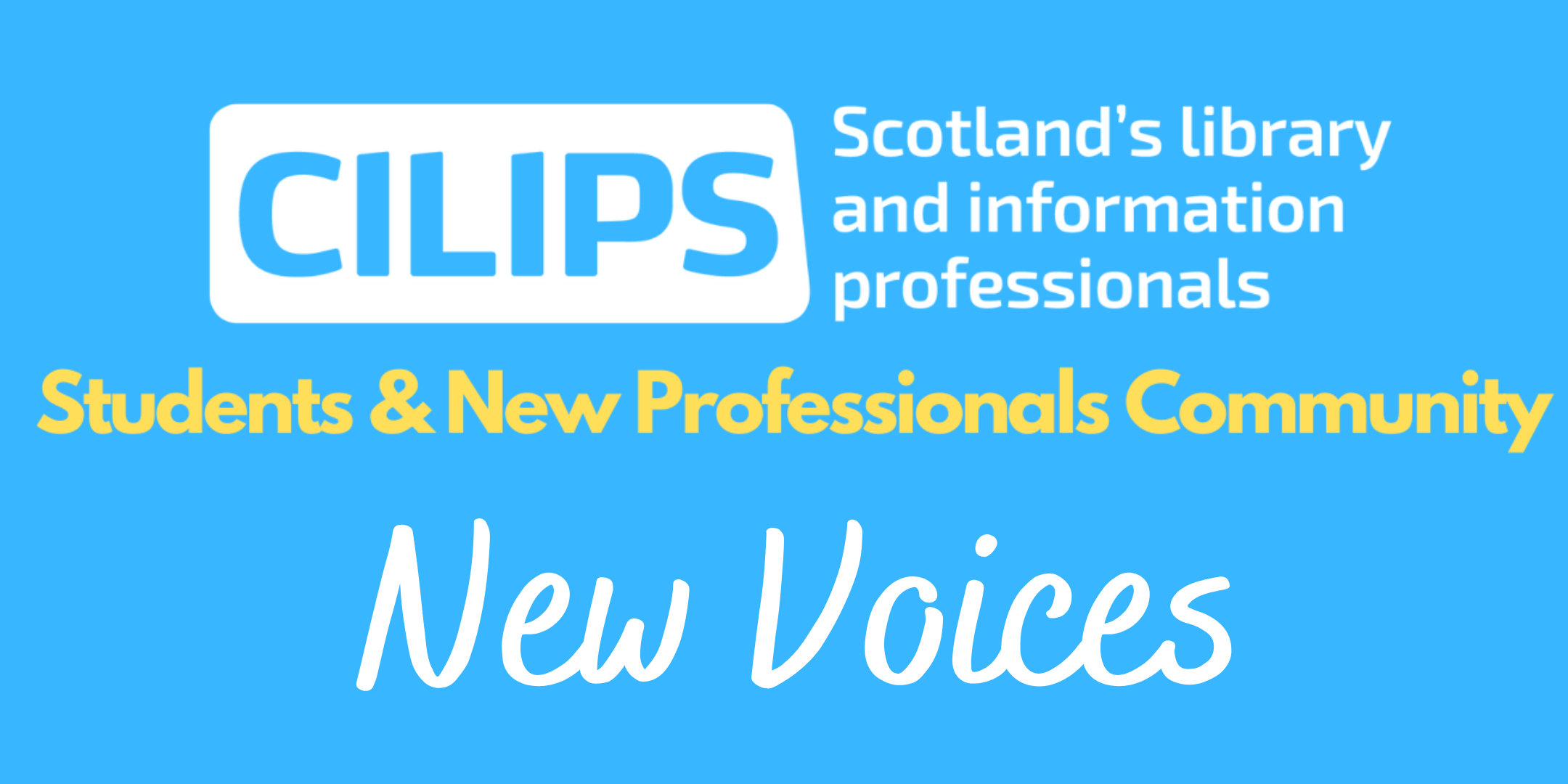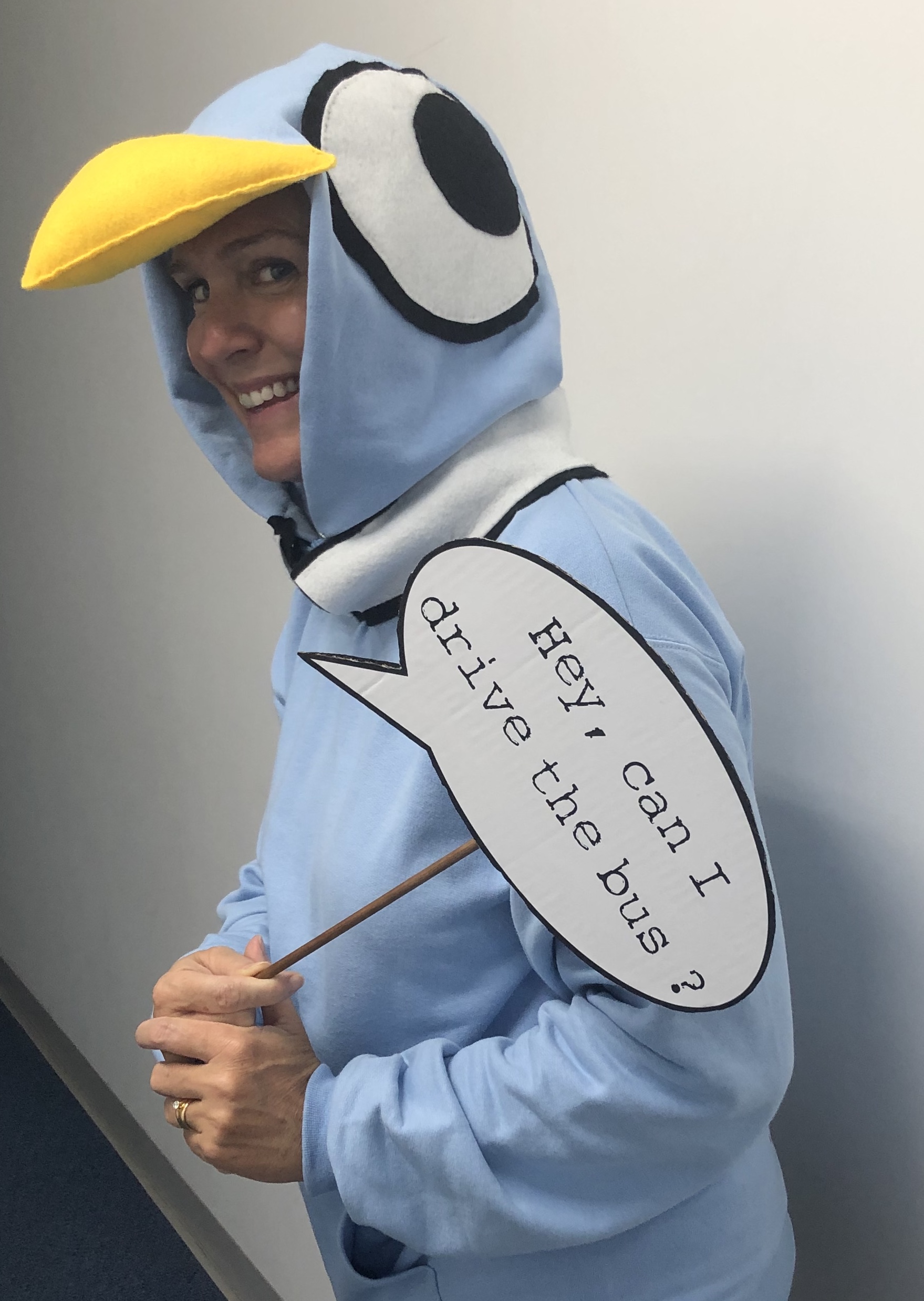New Voices RGU Student Series 2023 – Olivia Burford-Taylor
Category: Blog, New Voices, New Voices, RGU Student Series

In this 2023 Student Series for the New Voices blog, the CILIPS Students & New Professionals Community will be sharing the views of Robert Gordon University students from the MSc in Information and Library Studies. With special thanks to Dr Konstantina Martzoukou, Teaching Excellence Fellow and Associate Professor, for organising these fantastic contributions. This series will be shared by CILIPS Graduate Trainee Leah Higgins.
Author of today’s blog, Olivia Burford-Taylor has a passion for literacy and literature which lead to her current role as a library teacher, having come to this after years of international school teaching in Singapore. Olivia achieved a BA in both English and Graphic Design, before undertaking a Primary PGCE. In her spare time, she plays the piano, goes on runs, walks her dogs, and learns new creative skills through YouTube.
What is the role of information professionals in supporting the development of information literacy skills?
UNESCO’s Alexandria Proclamation defines information literacy as a fundamental aspect of lifelong learning, which gives people agency to, ‘achieve their personal, social, occupational and educational goals’ (UNESCO 2011) through the acquisition, evaluation and use of information. Instruction and scaffolding of information literacy in early education builds the foundation for students to become lifelong learners.
How do we ensure that our planning for young learners meets their needs and interests, while understanding is also embedded? Information literacy skills are traditionally driven by teacher imposed research projects, where the results satisfy requirements (Shenton and Dixon 2004) but do not specifically address the students’ needs. Lifelong learning skills are better developed through guided inquiry, which prepares students for and contributes to success in higher education, the workplace and life (Keith and Leslie 2020).
Children are motivated to seek information on what they find, ‘important, exciting and relevant’ (Bjørgen and Erstad 2015). Harnessing this ‘explanation seeking curiosity’ (Liquin and Lombrozo 2020) by encouraging students’ autonomy in topic choices gives information seekers a sense of responsibility (Chu, Tse and Chow 2011). Guided inquiry encourages active participation and leads to authentic and purposeful learning opportunities (Liquin and Lombrozo 2020).
When curiosity is encouraged to drive children’s inquiry, they learn to view information seeking as an organic and important aspect of finding answers to questions and problem solving (Kuhlthau 2013), consequently establishing the behaviour and skills needed for a future as adults who independently and consciously seek information.
Information seeking is not isolated to school, so to develop inquisitive and capable lifelong learners, information professionals should ensure that good information seeking practices are well embedded and become the natural processes that are used outside of classrooms. Students can then call upon these skills in any context to satisfy their interests, needs or external requirements (Shenton and Dixon 2004).
Students are more likely to be successful when they self-select topics (Bilal and Gwizdka 2018). This autonomy then leads to them establishing positive connections between their personal inquiry and task success (Buchanan et al. 2016). When students’ questions are answered successfully, with reliable information, they gain a more positive experience from their information seeking, and this will guide future practice (Ruggeri et al. 2016).
Purposeful and successful information seeking is open ended and requires time, which contrasts to usual practices in schools. Teacher imposed research is limited by time constraints and focused on task completion, therefore immersion in exploration and deep inquiry is not possible (Bjørgen and Erstad 2015).
Inquiry driven information seeking develops resilience. Information seeking can be challenging and time consuming, especially in the early stages of the research process (Liquin and Lombrozo 2020). Additionally, online research requires source navigation to locate information and evaluation for reliability (OECD 2021). If curiosity is driving inquiry, students are more likely to persist during challenges.
During an authentic inquiry process, the student generates questions and seeks the necessary information to find their answers. The information professional’s role is to guide their inquiry and act as the facilitator to learning (Chu, Tse and Chow 2011). They should ensure student engagement by encouraging curiosity and supporting the inquiry, alternating between guiding and targeting specific information literacy skills as they arise (Garrison, K.L., Fitzgerald, L. and Sheerman, A. 2019).
To expose students to a full range of information seeking skills, they should have weekly inquiry-based experiences (Chu, Tse and Chow 2011). Schools are typically constrained by curriculum requirements but it is still possible for teachers to meet these while giving students flexibility to develop their own inquiry. Information professionals should collaborate with teachers to utilise their knowledge of the curriculum, students’ learning needs and abilities (Laretive 2019) to plan authentic inquiry opportunities.
Thank you to Olivia, who has provided a thoughtful inquiry into the role of information professionals in developing information literacy skills. Highlighting ways in which the educational curriculum can facilitate this progress through exposure, flexibility and student inquiry.
Stay tuned for more in the 2023 New Voices RGU Student Series coming soon and be sure to check out the rest of CILIPS SNPC’s New Voices blog.
Bibliography
BILAL, D. and GWIZDKA, J., 2018. Children’s query types and reformulations in Google search. Information processing & management, 54(6), pp. 1022-1041.
BJØRGEN, A.M. and ERSTAD, O., 2015. The connected child: tracing digital literacy from school to leisure. Pedagogies (Mahwah, N.J.), 10(2), pp. 113-127.
BUCHANAN, S., HARLAN, M.A., BRUCE, C.S., & EDWARDS, S.L., 2016. Inquiry Based Learning Models, Information Literacy, and Student Engagement: A literature review. School Libraries Worldwide, 22(2), pp. 23-29.
CHU, S.K.W., TSE, S.K. and CHOW, K., 2011. Using collaborative teaching and inquiry project-based learning to help primary school students develop information literacy and information skills. Library & information science research, 33(2), pp. 132-143.
GARRISON, K.L., FITZGERALD, L. AND SHEERMAN, A., 2019. “They Should be Called Guiders”: Teachers and Teacher Librarians Developing Inquiry Learners. School Libraries Worldwide, 25(2), pp. 34-47.
KEITH, C.L. and LESLIE, K.M., 2020. Linking librarians, inquiry learning, and information literacy. Phi Delta Kappan, 101(7), pp. 1.
KUHLTHAU, C.C., 2013. Inquiry inspires original research. School Library Monthly, 30(2), pp. 5.
LARETIVE, J., 2019. Information Literacy, Young Learners and the Role of the Teacher Librarian. Journal of the Australian Library and Information Association, 68(3), pp. 225-235.
LIQUIN, E.G. and LOMBROZO, T., 2020. Explanation-seeking curiosity in childhood. Current opinion in behavioral sciences, 35, pp. 14-20.
OECD, 2021. 21st-Century Readers: Developing Literacy Skills in a Digital World | en | OECD. [online]. Available from: https://www.oecd.org/publications/21st-century-readers-a83d84cb-en.htm [Accessed Oct 30, 2022].
RUGGERI, A., et al., 2016. Sources of Developmental Change in the Efficiency of Information Search. Developmental psychology; Dev Psychol, 52(12), pp. 2159-2173.
SHENTON, A.K. and DIXON, P., 2004. The nature of information needs and strategies for their investigation in youngsters. Library & information science research, 26(3), pp. 296-310.
UNESCO, 2011. Media and information literacy curriculum for teachers. [online]. UNESCO. Available from: https://unesdoc.unesco.org/ark:/48223/pf0000192971 [Accessed Oct 16, 2022].
